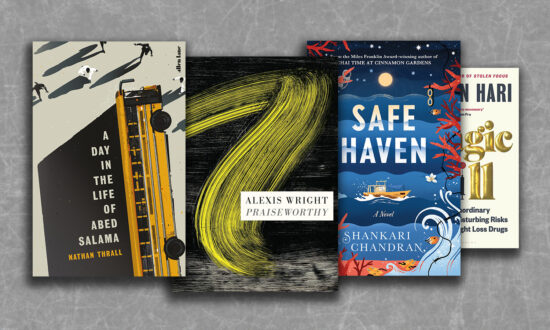In her introduction to the 2008 anthology Growing Up Asian in Australia, novelist Alice Pung observed how “… throughout Australian literary history, Asians have often been written about by outsiders, as outsiders”.
“Our outside identity oscillates between being a grave threat to white nationhood and being the obedient racial group least likely to offend, depending on the political climate,” Pung wrote.
“Many people continue to subscribe to one particular version of Australian history – one that spans only two centuries, and one that tries hard to cram everyone into a very rigid national narrative. Perhaps the reason Asian-Australians find it hard to fit into this national narrative is that we rarely get to do the storytelling.”
Since arriving in Australia in 1991, Chinese-Australian writer Ouyang Yu has sought to do much storytelling, publishing more than a dozen books of poetry, fiction, non-fiction, literary translation and criticism in both English and Chinese.
His latest book, The White Cockatoo Flowers: Stories, is his first collection of short stories, featuring 17 pieces of original fiction and a stand-alone novella, the fragmented and wistful Island.
At the heart of these stories sit fundamental questions of belonging, exclusion, dislocation, estrangement and identity crises.
Yet to highlight these themes is not to fundamentally reduce Yu’s stories to being reflective of a “migrant” or “ethnic” literary sub-genre. Like his contemporaries Nam Le, Brian Castro, Mena Abdullah, Simone Lazaroo and Hsu-Ming Teo, Yu’s stories are concerned with the more subtle articulation of broader notions than such a rubric seems to suggest.
In Yu’s short fiction, place plays into the politics of belonging and difference when binary divisions such as place, belonging and exclusion, the self and the other, are invoked.
For Yu’s protagonists, places are contexts that provide people with the opportunity to learn social paradigms and cultivate ideologies and beliefs; they are the by-product of the powerplay within social and cultural structures.
A father and son muse on the value of fame and fortune and receding from the world by becoming a monk.
On Christmas Eve a lonely immigrant travels from his quiet outer suburb to the city in search of life.
Spouses negotiate their adult son’s decision to “rebrand” himself with an English name.
Between Shanghai and Montreal, a Chinese student and the Canadian man who has fallen in love with him exchange correspondence.
Haunted by the sounds of piano and violin and memories of the long-lost friend who only returns to him in dreams, a man struggles to confront the wreckage of his past.
Each of these premises is the jumping off point for the most compelling tales, all beautifully told, in The White Cockatoo Flowers: Stories.
The volume’s most affecting story is the disquieting, emotive Wolves From the North, in which Luo Wenfu finds himself alone on Christmas Eve. Stuck by himself in an empty home, house-sitting for his neighbour in the outer suburbs of Melbourne, he has exhausted all opportunities for entertainment, having “already watched the news on SBS and ABC. He searched from Channel Two right through to Ten before switching the TV off”.
He ponders telephoning a friend but quickly realises that “in this new city, he did not have anyone to call”. Bored and lonely, he takes a bus into the city, searching for the signs of life that evade him in deserted suburbia, musing that in Australia “Christmas means holidays. People went overseas or down to the beach, as far away from home as possible, leaving behind them a deserted city. Horrible, he thought. It’s as if I’ve become a maximum-security guard for the entire city”.

Get InReview in your inbox – free each Saturday. Local arts and culture – covered.
Thanks for signing up to the InReview newsletter.
On the bus, he encounters two Australian men carrying boxes of beer and thinks that “an Australian’s average daily beer consumption could easily exceed the amount of hot water a Chinese drinks”.
Like the narrator of the collection’s titular story, who glances at his watch on New Year’s Eve and is “swept by a feeling of loss and attachment to a past that was no longer there: If I were in China right now, I would be …”, Luo feels fundamentally dislocated in his new homeland.
In their own ways, each of Yu’s stories is a movingly elegiac snapshot of what it is to be “other” – the lost, the lonely, the searching and the maligned. Stranded, either physically or emotionally, each of his protagonists, be they a father, a son, a poet, a husband or a stranger, strives to find steady footing on shaky ground that is simultaneously foreign and familiar.
The White Cockatoo Flowers: Stories by Ouyang Yu, Transit Lounge, $32.99.
Support local arts journalism
Your support will help us continue the important work of InReview in publishing free professional journalism that celebrates, interrogates and amplifies arts and culture in South Australia.
Donate Here




